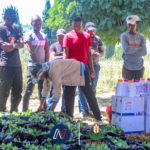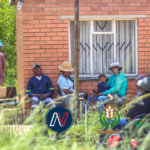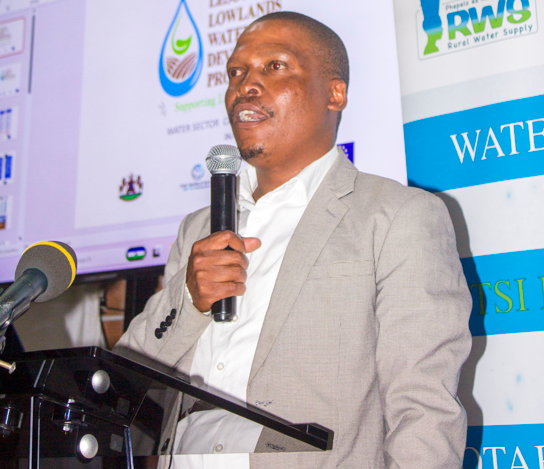Lesotho is making significant strides in strengthening its water infrastructure, with major projects advancing to improve access, efficiency, and sustainability.
This progress was the key focus of the annual Water Sector Coordinator Meeting held in Maseru by the Ministry of Natural Resources in commemoration of World Water Day which is marked on March 22 annually.
World Water Day, which has been celebrated annually since 1993, is an annual United Nations Observance focusing on the importance of freshwater.
World Water Day celebrates water and raises awareness of the 2.2 billion people living without access to safe water. It is about taking action to tackle the global water crisis. A core focus of World Water Day is to support the achievement of Sustainable Development Goal 6: water and sanitation for all by 2030.
Every year, UN-Water — the UN’s coordination mechanism on water and sanitation — sets the theme for World Water Day and this year’s theme is – Glacier Preservation.
Bringing together key players in the water sector, the meeting reviewed accomplishments over the past year, assessed ongoing challenges, and outlined next steps for expanding Lesotho’s water security.
Present were representatives from the Lesotho Rural Water & Sanitation Project, the Lesotho Lowlands Water Development Project (LLWDP), the Department of Rural Water Supply, and the Water and Sewage Company (WASCO).
Thabiso Tšasane, the LLWDP coordinator, provided an update on Phase II of the project, which is being financed by the World Bank and the European Investment Bank, with support from the European Union.
He highlighted the tangible progress in infrastructure development across priority zones, including Hlotse, Maputsoe, Mohale’s Hoek and Mafeteng.
“We have made great strides in constructing bulk water infrastructure, including intake structures, pump stations, raw water mains, service reservoirs, and transmission lines. This is a transformative project that will greatly improve access to clean water for thousands of Basotho,” Tšasane stated.
He further emphasised the project’s long-term vision, saying; “Beyond expanding access, our goal is to ensure climate resilience by strengthening water management systems that can withstand extreme weather conditions.”
In addition to infrastructure expansion, WASCO is introducing advanced technology to improve efficiency in water usage and billing.
Dr. Khalema Koebu, WASCO’s interim CEO, presented the company’s new Advanced Metering Infrastructure (AMI), a smart water metering system designed to reduce billing errors and give consumers greater control over their water usage.
“With these smart meters, customers will receive precise readings, eliminating the inaccuracies that come with estimation-based billing. Households will also be able to track their own water consumption in real time,” Koebu explained.
He described the AMI system as a game changer for Lesotho’s water sector, adding, “This initiative not only improves revenue collection and operational efficiency for WASCO but also empowers consumers to make informed decisions about their water use.”
The meeting underscored the significant progress made in securing Lesotho’s water future through infrastructure expansion and innovative technology. Stakeholders expressed confidence that these developments will enhance access to clean water, reduce inefficiencies, and help communities adapt to climate change.








